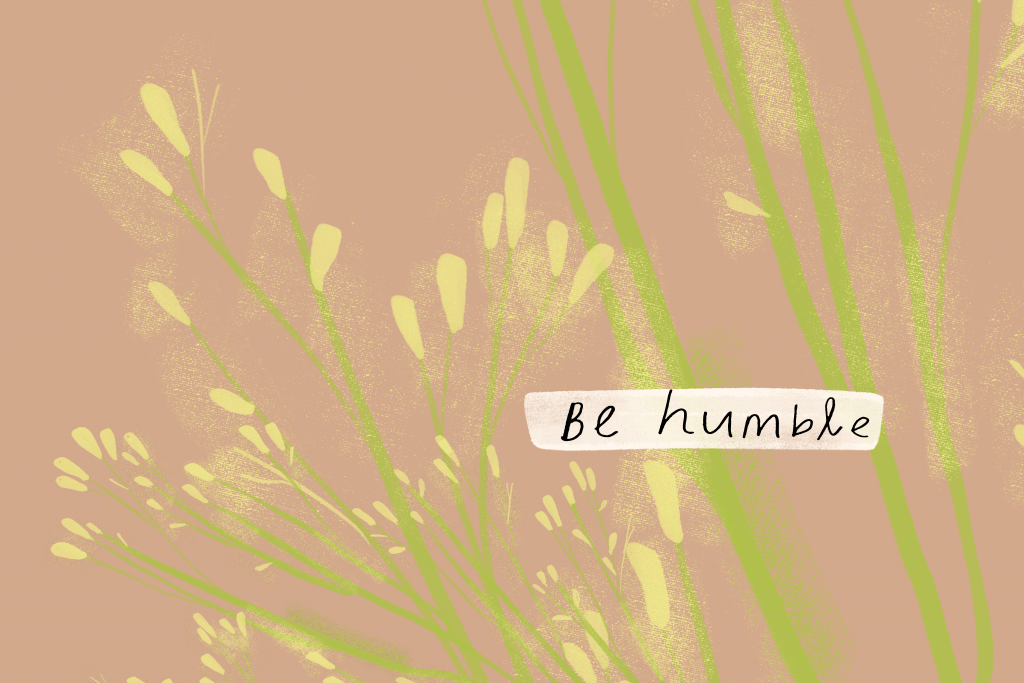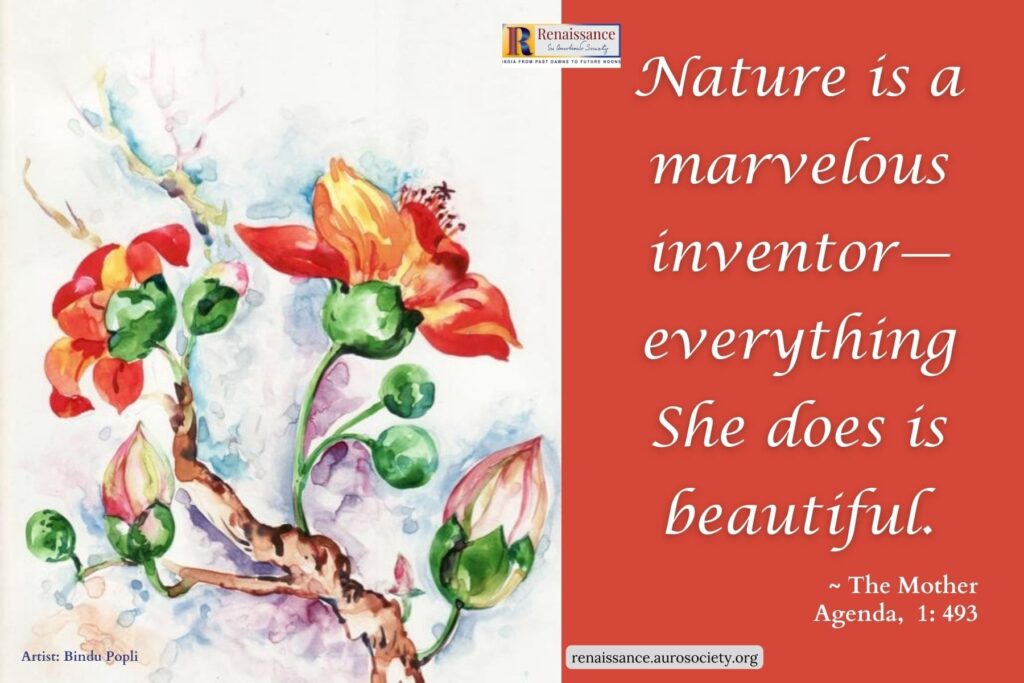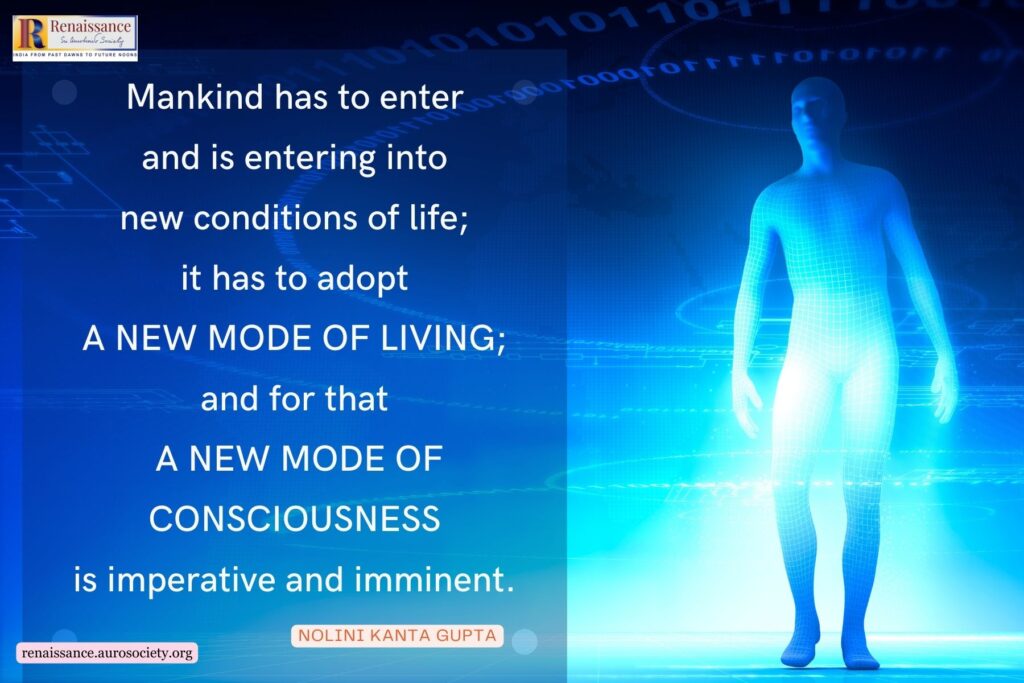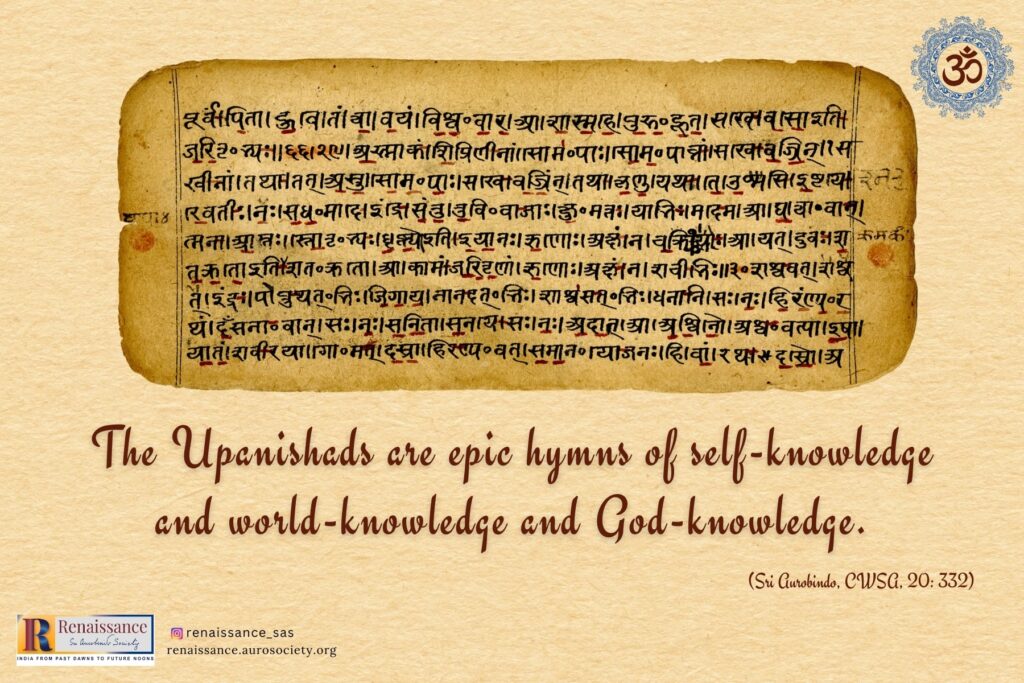“Modesty is satisfied with its own charm and does not draw attention to itself.”
~ The Mother, CWM, 14: 152
Humility is commonly understood to mean a lack of pride; a humble person is expected to feel that he or she is of no special importance, no better than others in any way. No wonder that in this day and age, humility has become one of the most undesirable qualities, almost equated to being poor or unsuccessful. “When you own it, you show it” is the modern mantra. Maybe it is time to understand that humility is not about negating one’s ego but taming it.
Nature has its unique ways of helping us cultivate those qualities that may otherwise be ignored. How often do we pause and admire the prairie dropseed grass with its beautiful yet humble display of tiny florets? If there is a rose bush nearby, the dropseed would simply be invisible to our eyes. But what we don’t realise is that the beauty of the rose is always enhanced by the display of humble grass in the background. Only from a place of humbleness can one enhance the beauty of his surroundings. The light from within shines forth through the garb of humble attitude.
Dropseed is an annual grass, with erect airy panicles of branching spikelets bearing minute flowers that open pale greenish white and change to maroon as they mature. The Mother gave this flower the spiritual significance: Humility, adorable in its simplicity.
The Mother says, “True humility is humility before the divine – that is, the precise, exact, living in the sense that one is nothing, can do nothing, understand nothing without the divine, that even if one is an exceptionally intelligent and capable person, one is nothing in comparison with the divine consciousness. . .” (CWM, 5: 45)
I am reminded of an old story about a wise humble sage living in solitude in a faraway island. People spoke about his virtues and vast knowledge, and his name spread far and wide. It reached the ears of a renowned king who was so inspired that he wanted to visit and learn from the sage.
The king started his journey on a boat accompanied by his ministers and finally reached the island. The sage welcomed him to his simple abode but had nothing much to offer him. The king asked the sage if he could teach him the scriptures and mantras that had made him so popular. The sage immediately obliged and started to teach him what he knew.
The king was devasted when he heard the sage’s chanting of mantras. He was himself a highly scholarly man and had read most of what the sage was sharing with him. He, in fact, felt sorry for the old sage and told him that his chanting of the mantras was all wrong and that he also needed to change his meditation practice or else he would be in serious trouble. The sage was petrified, and immediately asked the king to teach him the proper ways so that he wouldn’t be in trouble. The king gladly agreed to help the sage.
After teaching the sage how to chant properly, how to meditate and several other things, the king was finally ready to leave. He bid goodbye to the sage and sailed off in his boat. About a few miles into the ocean, the king’s ministers saw something or someone running towards the boat. They were horrified and informed the king. The king came out of his private chamber to see what the ruckus was about. Lo and behold, it was the sage running on water, huffing and puffing.
The king was still in a state of shock when the sage finally reached the boat and exclaimed, “sorry, my King, but I just forgot the mantra you taught me. Can you please repeat it once again!”
The king couldn’t utter a word, his eyes continuously staring at this barefooted old man so far away into the ocean wearing just a small robe! He realised his mistake and said, “Sorry sir, I think what you were chanting was the right mantra and the right way, it is I who has to change his ways.”
Looking confused, the sage retreated back to his abode.
No matter what spiritual or religious practice we pursue, if it is not infused with a pure sense of humility, grace doesn’t descend upon us. The sage is the humble dropseed shining his light upon the king, the rose, eventually bringing a magical transformation all around him.

Humility is under-rated as a quality today because the dictionary defines and accentuates it as low self-regard and a sense of unworthiness. But in its truest sense, humility is neither having pride, haughtiness or narcissistic qualities nor is it indulgence in self-depreciation. It is actually about attaining a perfect balance, an energetic vitality that displays a healthy ego which is a sure sign of self-esteem.
Psychologists have seldom found correlation between high self-esteem and accomplishments. Often people with successful careers, extraordinary looks or loads of money also exhibit signs of low self-esteem. On the other hand, the ones with healthier self-esteem may not own much, have fewer expectations in life and simply give themselves the permission to be humble with whatever they own and achieve. They also take good care of themselves and others in their lives and overall have a positive approach to life.
The second chapter of Yogasutra of Patanjali, sadhana pada, tells us – “Tapah Svadhyayah Ishwara Pranidanah Kriya Yoga” (2:1). This is the yogic action a sadhaka pursues to reach his spiritual goal. The three requisites of this action are austerity or intense spiritual effort with enthusiasm (tapas), self-study and study of scriptures (svādhyaya) and surrender to the Supreme, the Divine with humility (ishvarapranidhana).
Enthusiasm and austerity provide the intense heat and energy needed to remove obstacles and impurities in life in order to move forward. But this enthusiasm must always be accompanied by clear intelligence or viveka which is the result of study of wisdom texts or svādhyaya. These two combined is a perfect formula for a forward march toward a perfect life where neither the truth of matter nor the truth of spirit is denied.
But then Patanjali reminds us, if these two are not infused with humility and surrender towards the divine, our efforts would be futile. To release the illusion of control is to cultivate humility. There are innumerable things that are beyond our control and relinquishing the need for control and surrendering to that unknown is the essence of humility.
When we cultivate humility and modesty, we encourage ourselves to be patient and honest. we forgive ourselves for the mistakes we make and this in turn helps us appreciate ourselves and the world at large. Through humility all our internal dialogues, commentaries and predilections subside (called as nirodha in Yogasutra). This, in turn, helps us accept life as it is, and arrive at a state of harmony.

~ Design: Shahla Sayeed



